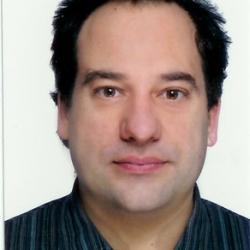A novel and patented platform technology is being developed to create a new method ultimately capable of sequencing over four billion bases a day. The new method will be faster, more accurate and will inaugurate a paradigm shift in the analysis of genomic information. The method is based on the development of digital multibit encoding techniques that utilise advanced magnetic technology. The project has far reaching implications related to the development of advanced systems for ultra high throughput biological assays that can be used in clinical diagnostics, drug discovery and genome sequencing. The generic technology will be capable of tagging billions of compounds synthesised by combinatorial chemistry techniques and decode them in a single experiment. The main advantages of the proposed technology are, the ability to provide remote encoding during the synthesis of chemical or biological moieties, the ability to provide an extremely large number of discrete codes and the ability to rapidly and unambiguously read them. A variety of applications of the proposed technology exist, including ultra high throughput (UHT) screening of chemical or biological samples (bioassays), UHT genome sequencing and genotyping including single nucleotide polymorphism (SNP) detection, drug discovery, etc. Moreover, simpler applications, such as viral assays, that require a smaller number of codes, can also be addressed with our technology [1]. In addition, the digital magnetic encoding offers the possibility of synthesising and simultaneously encoding chemical libraries consisting of very large numbers of compounds.
The technology of Digital Magnetic Tagging was conceived in 2002 and initiated in 2003 by Professor Tony Bland and Dr Thanos Mitrelias. The project was funded with approximately £5M with an RCUK Basic Technology award entitled "4G - 4 Billion Bases a Day", the principal investigator of which was Professor Mark Bradley, now at the University of Edinburgh. Our group at the Cavendish received £2.5M and collaborating groups at the Universities of Southampton and Edinburgh a further £2.5M. The project brings together 5 key areas:




